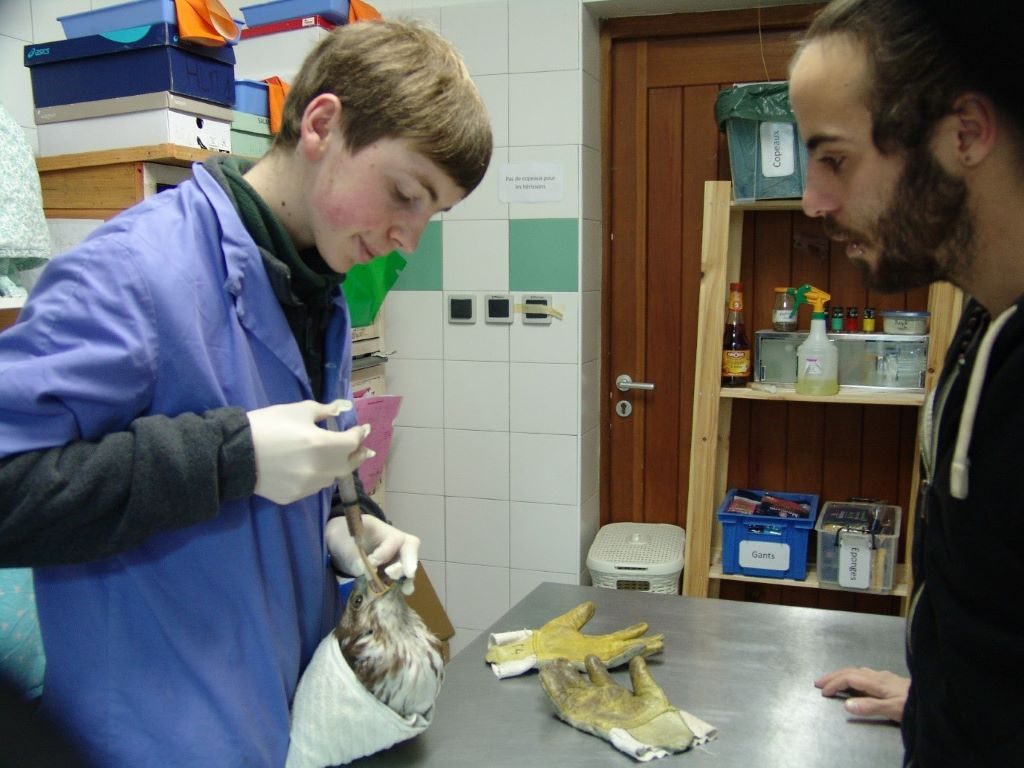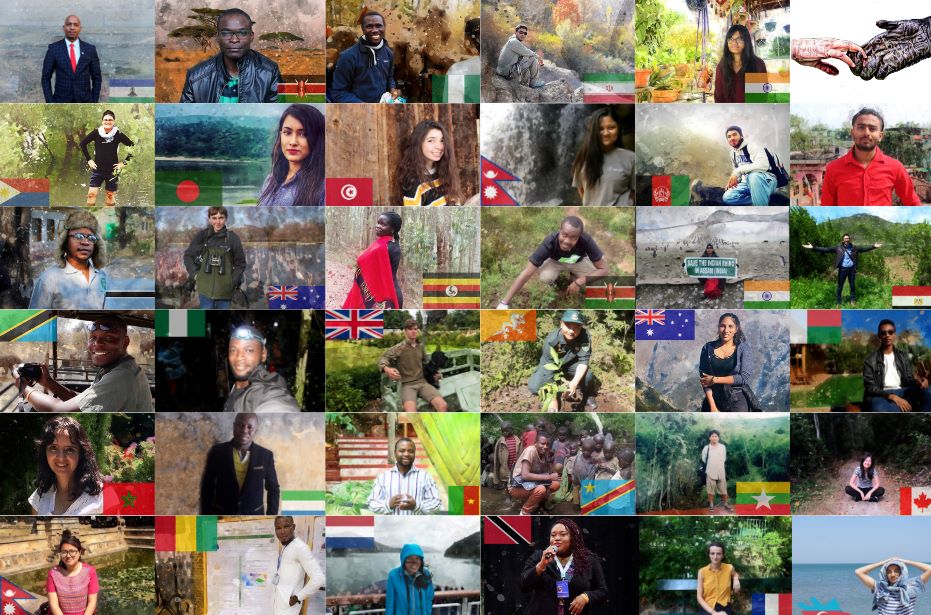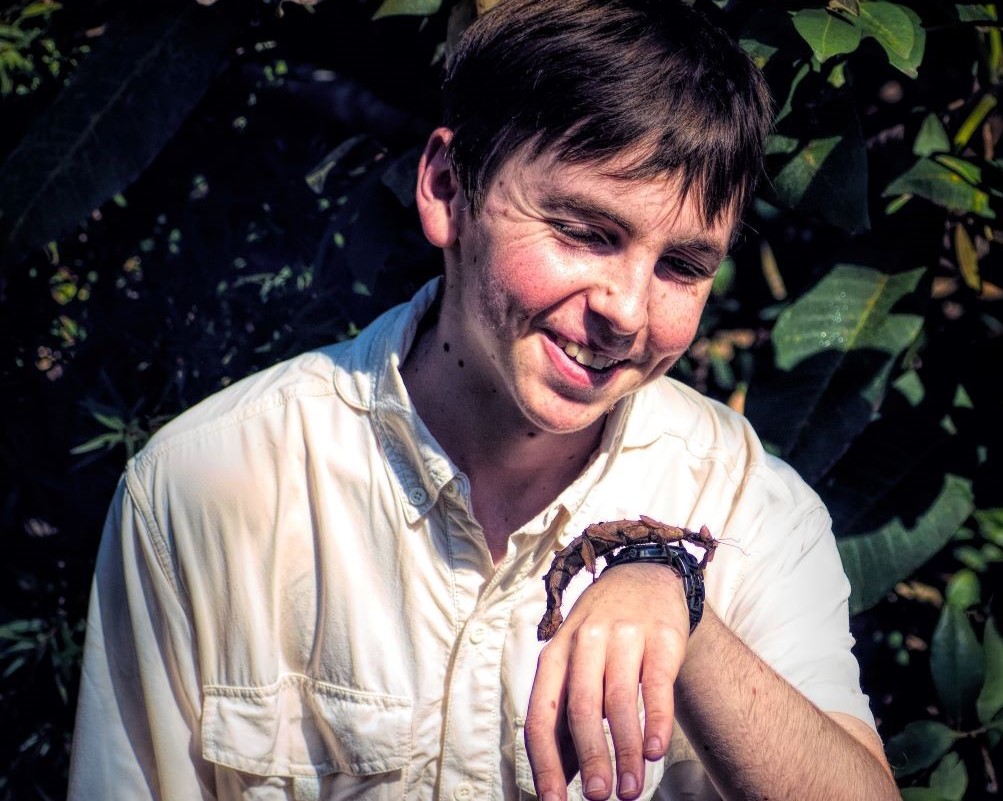The world of conservation can be an insular place. To outsiders it can look like a gaggle of wizened binocular-toting retirees in khaki crawling through the bush, taking notes on clipboards with fountain pens. A newcomer who doesn’t know a sparrow from a sparrowhawk – much less a honeyeater from a wren – might understandably feel uneasy alongside such seasoned binocular-toters. This feeling can make conservation inaccessible and niche at a time when we desperately need it to be mainstream.
Having experienced this feeling first-hand, Elliot Connor is on a mission to improve things in conservation and remove barriers to involvement. When Elliot, a teenager from Sydney, was looking for a community project a few years ago for his Duke of Edinburgh, he landed on a volunteer position with Birdlife Australia. He estimates he was the only volunteer this side of 70. But that position turned out to be the first step into the world of environmental conservation which has become Elliot’s passion and purpose.
Seventeen-year-old Elliot is in his final year of high school; he attends class and studies for exams along with his peers. But outside the classroom he moonlights as founder and CEO of Human Nature Projects (HNP), a global not-for-profit organisation aimed at supporting community-driven conservation projects and working to make conservation more accessible, particularly for young people. ‘It was quite hard for me, initially, to get into the nature conservation field,’ says Elliot, ‘so I wanted to make it easier for members of the public to get involved and help out in whatever ways they can.’
This is the basic concept behind Human Nature Projects, an international NGO based on grassroots and community-led conservation. Slow to start, the organisation has begun to grow rapidly, already boasting 1200 volunteers in 102 countries. The idea, says Elliot, is to tie in with existing projects, supporting smaller organisations by assisting with resourcing and recruitment of volunteers. ‘I’m actively involved in a dozen or so,’ he says. ‘We’ve got conferences in the Congo, bird-blitzes here in Australia, eco-friendly food fundraisers in Canada, tree-planting, litter-picking and goodness knows what else taking place through our dedicated national teams.’
The organisation was conceived at the beginning of this year, when Elliot spent his summer holidays overwintering in a French castle, helping out at a raptor rehabilitation centre. ‘There were a lot of dark, cold nights. I did lots of thinking, and came up with the idea,’ Elliot says.

After a year and a half in the conservation world, Elliot felt he’d done a pretty good job finding his way in and had some memorable experiences. But between the red tape, resource scarcity and the intergenerational divide, he had sometimes felt that any small success was against the odds. Something needed to change. Just six months later, in June this year, Human Nature Projects was born.
Outreach and volunteer recruitment are currently the main focuses of HNP, with the dual aim of building a resource pool for on-ground conservation projects and providing an easy gateway into conservation volunteering for community members.
Most of what little time Elliot has outside his studies and being a CEO and VCE student is spent volunteering with other organisations. ‘I don’t think it has to be either or,’ he says. When we speak, he has just returned from a conference and a hike he organised in the Blue Mountains over his school holidays.
Since his initiation into the conservation space at Birdlife Australia two years ago, Elliot has started the Sydney Naturalists group, which he still runs. He has established regional bases for both Youth for our Planet and the Global Youth Biodiversity Network, joined as an ambassador to CoalitionWILD and the Lawrence Anthony Earth Organization, only to name a few. He also works as a wildlife carer, rotating a menagerie of animals through his home, currently including a Tawny Frogmouth. While has met some other young conservation enthusiasts through involvement with some of these groups, it’s an unusual way for a teenager to spend every waking minute of his spare time – something Elliot would no doubt like to see changed.
‘I think, mostly, it’s that I really enjoy it. The most fascinating part for me is I get to speak with people from India, Democratic Republic of Congo, Malawi… yesterday that was my schedule… it’s quite amazing for someone of my age.’ Elliot has a healthy resume of achievements for someone of any age, let alone his tender seventeen years. A keen and talented photographer, Elliot was recently invited to attend and co-facilitate a masterclass at the Queensland studio of eminent wildlife photographer Steve Parish.
But perhaps more impressive than his achievements is his entrepreneurial drive and his refusal to lose faith. Elliot has achieved the organisation’s growth so far by a combination of networking, hustle, hard work and grit. He spends a lot of time researching other organisations and projects, and reaches out to everyone and anyone. ‘I think I’m getting better at it,’ he says, and he keeps up momentum with a healthy bit of self-motivation. ‘Every time I get a positive response, I do a fist pump… If it’s negative, I’ll whack an old chopping board with my sword. That board is pretty battered.’
Elliot’s parents, both leadership coaches and amateur birdwatchers, are supportive but mostly leave him to his own devices. ‘I think their first reaction was fairly bemused,’ Elliot says. ‘I walked in at dinner time one night after speaking with a member of the Lesotho Olympic Committee in Africa. I think that shocked them a bit.’ But, he says, like most parents, they’re mostly concerned that he’s getting enough sleep and getting his homework done. So how does he fit it all in?
‘I’m never really sure how to answer that,’ Elliot muses. ‘I guess I just do. I organise my time as best I can: lots of early morning correspondence, late nights and homework on the bus.’ His recent move from a traditional, competitive grammar school to one that’s more project-based has allowed him some more freedom with how he spends his time outside of academic pursuits and, as he says, ‘school isn’t too much of a burden for me.’
Like many of his peers, Elliot plans to take a gap year after he finishes his VCE, but it won’t be a typical beach-party trip. He wants to use the time to grow Human Nature Projects, travel and meet up with his global network, as well as pursuing other conservation interests outside his own organisation, gaining experience in natural history filmmaking. After that, he thinks he’ll go back to study to tie down a degree in zoology.
While the future, as ever, is not all planned out, one thing seems clear: he’s not putting down the binoculars any time soon.

Visit the Human Nature Projects website and follow on social media to learn more or to get involved. Elliot also has a personal website on which he writes about nature-related topics.
Banner image of Elliot and his pet stick insect Ochre (who recently passed). Image provided by Elliot Connor.


Leave a Reply